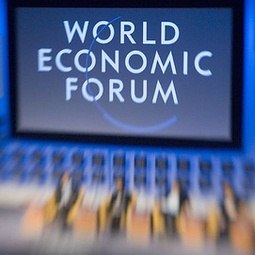Days after Moldova had initialed its Association Agreement with the European Union at the Vilnius Summit in December 2013, officials at breakaway Transnistria’s de facto Ministry of Foreign Affairs mocked Moldova’s bid for European integration stating, “The Moldovan leadership is in Brussels a lot, so they can become European quicker than the rest of Moldova’s population.” A ministry official also decried myths depicting breakaway Transnistria as a hub for trafficking drugs and dirty bombs and described a number of measures that Moldovan officials were allegedly taking to strangle and blockade Transnistria.
Among these measures was the decision by authorities in Chisinau, Moldova’s capital, to set up migration control posts along the Dniester River, which bounds the western edge of Transnistria. Moldovan officials explained that they had set up the migration control posts ahead of the Vilnius Summit to demonstrate to the EU that they are serious about disrupting illegal migration and contraband flowing from Transnistria across Moldova and toward the EU. As Moldova was once also included in the derogatory phrase “black hole,” Moldovan officials were keen to show that they had made strides in border control but that they still needed Western security assistance.
The EU and other border aid donors such as the United States tend to define the problems along the region’s borders as directly related to capacity gaps. That is, cash-strapped, institutionally deficient countries like Moldova would better deter illegal immigration and more ably prevent arms and narcotics trafficking if they had stronger and more professional border management institutions. Thus, Western security assistance to Moldova is aimed at these security and capacity gaps.
In reality, lapses in border management have less to do with weak capacity and more to do with political will. Officials in Moldova and its breakaway region approach their borders as opportunities for economic statecraft and revenue and less so as institutions to deal with trans-border threats. This means that European and U.S. aid will only go so far.
The State of the Border
The War of Transnistria in 1992 created an intractable problem for Moldova’s borders. When separatists took over a long sliver of territory on the left bank of the Dniester, Chisinau effectively lost the ability to control a 470-kilometer stretch of its border with Ukraine.
Moldova, including Transnistria and EUBAM’s area of responsibility
[[{“type”:”media”,”view_mode”:”media_large”,”fid”:”2006″,”attributes”:{“alt”:””,”class”:”media-image”,”height”:”480″,”style”:”width: 423px; height: 480px;”,”typeof”:”foaf:Image”,”width”:”423″}}]]
Source: EUBAM Press Pack, 2013
In the decade that followed, officials in the breakaway capital of Tiraspol engaged in a flurry of state-building activities that included creating a parliament, courts, a central bank and currency, as well as military, police, customs, and border control services. A 2006 International Crisis Group report declared that Transnistria had developed all the institutional markings of a state.
Authorities in Chisinau faced a dilemma after the loss of Transnistria. They were unable to deploy border guards and customs officials along much of the border with Ukraine; at the same time, they were unwilling to police the internal border with the Transnistrian region along the Dniester lest this create the appearance that Chisinau was setting up a de facto border and thereby acquiescing to the loss of the territory. Chisinau tried to resolve the dilemma by lobbying Ukraine to beef up its border controls and pestered Ukraine’s officials to grant Moldova’s border authorities access from the Ukrainian side.
Throughout this period, EU and U.S. officials pressured Moldova to improve border security. Helge Blakkisrud and Pål Kolstø (University of Oslo professors who have written extensively on post-Soviet nation-building) report that in 2002 an EU Parliamentary delegation referred to the region as a “black hole of illegal trade, trafficking, and smuggling.” In 2004, European officials again raised the alarm that arms smuggling appeared to be in full swing along the Ukraine-Moldova border. Officials from Moldova, Transnistria, and Ukraine bristled at the criticism, and a spokesperson for Ukraine’s frontier guard sarcastically reflected, “If Europe was as liberal with its assistance as it is with its criticism, we would have no more problems.”
European officials ultimately decided to help Moldova and Ukraine to manage their borders. This aid came mostly in the form of the European Union Border Assistance Mission to Moldova and Ukraine (EUBAM), launched in November 2005. The initiative was doubly urgent as Romania was preparing for entry to the EU, and concerns abounded that Moldova was not ready to shoulder the responsibility of sharing a border with an EU member state. At the same time, EU officials were eager not to be outdone by U.S. assistance, which supported both states on customs reform and supplied a host of high-tech equipment for detecting radiological substances at border crossings. Moldova’s authorities welcomed the EU mission, maintaining high hopes that it would disburse lucrative aid and counterbalance some of Russia’s influence (Moscow had disbursed substantial amounts of economic aid to the breakaway region and maintained a troop mission in Transnistria).
With a healthy budget and presence across Moldova and Ukraine, EUBAM set out to modernize and improve the capacity of border management authorities. The program’s initiatives included training officers in border agencies, technical assistance (such as computers, thermal imagers, and vehicles), and confidence-building measures designed to increase trust between Moldovan and Ukrainian officials.
Playing Chicken at the Border
In the months after EUBAM set up shop, local papers published reports on smuggling rings. These reports indicated that the contraband going across the border was not quite weapons-grade material, however, noting that in May 2006 more than 40,000 tons of chicken had been shipped into Transnistria through Ukraine’s Black Sea ports. The quantity raised suspicions as it amounted to 66 kilograms (146 lbs) for each resident of Transnistria. According to some reports, the poultry was being reloaded into smaller trucks, smuggled back into Ukraine to avoid import taxes, and sold at below-market rates. Another explanation suggested that the chicken never actually made it to Transnistria but that Moldovan export certificates were being used abroad to disguise the provenance of the poultry, and that both Transnistrian and Moldovan officials were involved in the illicit use of the certificates. Either way, estimated profits amounted to approximately $1,000 per ton of chicken. As a member of the EU mission stated, “They make more money than they would dealing weapons.”
This episode of smuggling is as consequential as it is colorful. It has played an important role in shoring up Tiraspol’s elites and state structures (structures that were well-developed and revenue-hungry as Blakkisrud and Kolstø indicate in their work on Transnistrian state building). EU representatives familiar with Moldova noted that such large-scale and efficient smuggling necessarily involved official collusion. Notably, the poultry imports were registered to a company named “Sheriff,” a highly dominant Transnistrian enterprise that includes petrol stations, supermarkets, car dealerships, food production, telecommunications, and the football club FC Sheriff Tiraspol. In a study of the Transnistrian economy, Kamil Całus notes that Sheriff’s official contributions alone constituted as much as 30 percent of the breakaway region’s tax budget. The company has a history of close relations with Transnistrian customs officials and, allegedly, the family of Igor Smirnov, the territory’s former de facto president, in order to secure reductions in taxes and import duties as well as preferential “access” to the border.
At the same time, Moldova’s own border institutions have been sites of lucrative economic and political battles. Official collusion with cigarette smuggling has been a long-standing problem across the Moldovan-Romanian border, as has trafficking and out-migration that is illegal or secured with fraudulent documents. As one Moldovan columnist quipped in a December 2013 op-ed in The New York Times, “If illegal immigration were an Olympic sport, we would be the gold medalists.” According to some accounts, the former-governing coalition Alliance for European Integration was riven by infighting a few years ago because of struggles to control key revenue-generating ministries and agencies, including customs.
Chisinau and Tiraspol certainly see their borders as security institutions and as means to shore up their overlapping sovereignty claims, but they also see them as tools of economic statecraft and revenue building. In some cases, this means asserting more control over the border, in some cases less. Officials in Chisinau and Tiraspol have incentive to control the border more when licit trade flows entail lucrative customs taxes, registration fees, and tools. At a border crossing near Bendery, Transnistrian officials have set up a well-staffed border crossing where customs rates, duties, and import allowances are prominently advertised and collected. As revenue over customs and flows is lucrative, neither side wants to give up, and this has been the source of recurring disputes. Officials in Tiraspol, for example, repeatedly note that Transnistrian companies registered in Moldova are subject to double taxation (such as sanitary fees, environmental fees, and customs duties), despite assurances that the companies would not be paying taxes to the Moldovan government.
At the same time, Chisinau and Tiraspol have less incentive to control the border when it comes to illicit flows of goods and people. Neither Chisinau nor Tiraspol have much incentive to end smuggling given the role contraband plays in infusing their economies with revenue. During the poultry smuggling scandal, Ukraine’s national security adviser estimated that illicit trade with the Transnistria region was $250 million per year, an amount equivalent to the annual breakaway region’s government budget.
Does It Matter in the End?
Given these economic realities, it is hard to see why Chisinau or Tiraspol should change their behavior at the border, and donor countries need to confront the limitations of their security-sector assistance. Instead of continuing to focus on the capacity gap and the perks of closer association with the EU, those who dispatch security and development assistance must think more about how the aid they give will affect the bottom line of rulers and state budgets.
European policymakers should continue to fund EUBAM’s work to professionalize and train border authorities with long-term horizons. At the same time, it is important to be realistic that donors cannot promote a short-term transformation of the region’s political economy, which keeps borders from functioning “better.” Due to political and financial constraints the EU cannot offer Chisinau (or Tiraspol, for that matter) large-scale aid and transfers that would diversify the region’s economy and increase the appeal of licit activities.
Nor is the EU in a position to make its border and security assistance conditional on better performance on the part of recipients. The EU’s leverage in border and security assistance is currently in stasis in Ukraine given the political upheaval there and uncertainties about which way the country will ultimately lean—toward Moscow and the Customs Union or toward greater association with the EU. At the same time, the EU’s leverage in Moldova is hampered by Chisinau’s emergence as front-runner for establishing a Deep and Comprehensive Free Trade Area with the EU. For the time being, Brussels needs Moldova to move toward closer association to resuscitate the wounded EU brand. This geopolitical reality makes it difficult for European policymakers to demand better performance on border management from aid recipients. But this may not matter. The past decade has shown that the price of letting the status quo continue along Moldova’s borders is affordable as far as European security is concerned.
[View PDF]










